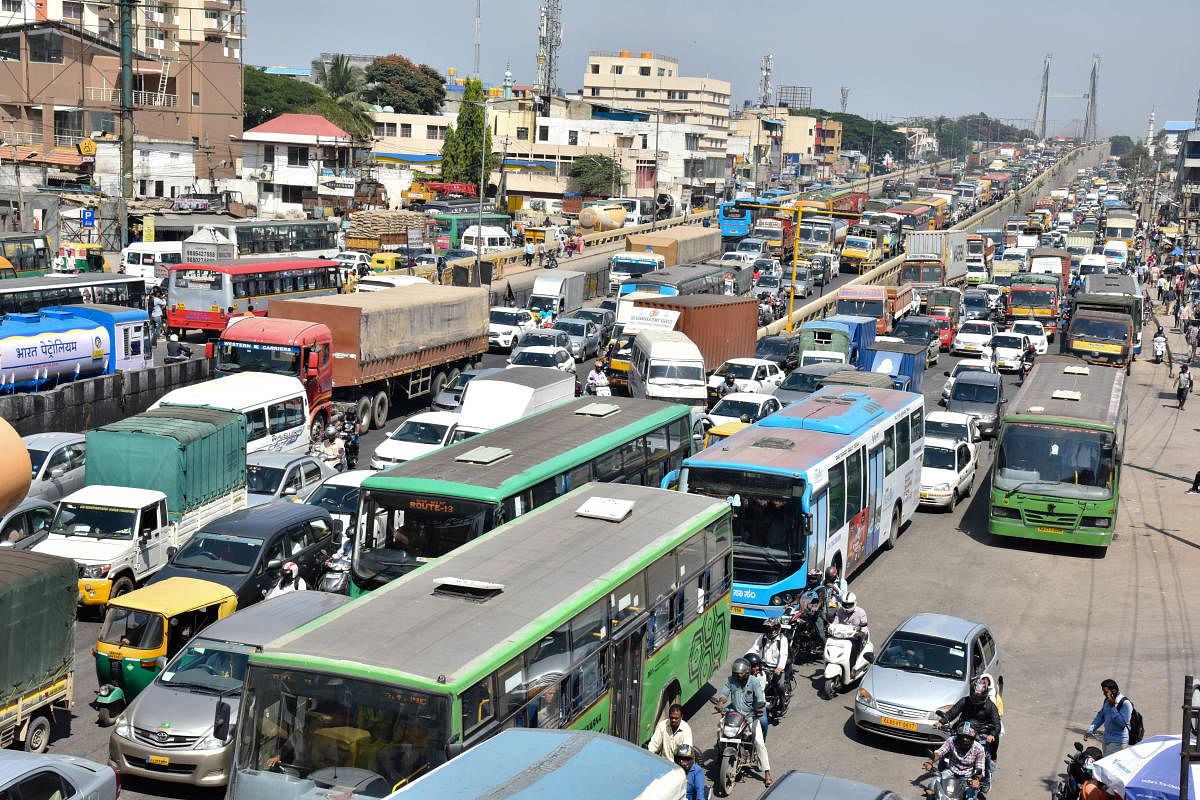
There’s some good news for city’s harried motorists. The state government will soon deploy advanced Japanese traffic technology to decongest critical junctions across Bengaluru.
After finalising a Japanese multinational firm to implement the project, the Directorate of Urban Land Transport (DULT) has issued work orders to install Que-Length measurement sensors (QMS) along major roads like MG Road, Old Madras Road, Hosur Road and other 29 junctions.
The project costing Rs 72 cr will be executed with assistance by the Japan International Cooperation Agency (JICA) and work will begin anytime in June.
The road sensors based Japanese traffic system is expected to reduce traffic snarls at least by 30 per cent.
ALSO READ: Japan-funded project to cut down traffic congestion in Bengaluru by 30% by 2022
The project will enable monitor real-time traffic signal timing with the help of QMS.
The sensors will analyse the traffic density of the road and the automatic traffic counters will communicate the data with Bengaluru Traffic Information Centre (B-TIC), which will streamline the signals as per the traffic density.
The DULT will be a nodal agency for the project and identified about 29 critical locations - MG Road (12), Hosur Road (9) and Old Madras Road (8) - where QMS sensors will be installed at every 50, 100 and 150 meters of the stretch.
They will analyse traffic density along the particular carriageway and share the real-time information with B-TIC and traffic police.
“The current traffic signals function based on the pre-set timing. But this technology allows the release of traffic based on the actual density on roads to the entire stretch irrespective of junctions. If the density is more at the Trinity Circle towards Anil Kumble Circle, the sensors will release signals along this high-density stretch in one go by releasing all signals,” a DULT official explained.
The technology has been in use in many cities of South-East Asian countries and Bengaluru will be the first city to have Management by Origin-Destination Related Adoption for Traffic Optimization (MODERATO) technology other than Japan.
Mahendra Jain, Additional Chief Secretary, Urban Development Department said, “The tenders are finalised and we have issued work orders to execute the project.
“As the firm has already appointed consultants, the work may begin any time in June,” Jain said.
Besides the Queue Measurement Sensors (QMS) and Classifier sensors, the project also envisages installing Variable Message Signs (VMS) in KR Puram, Silk Board and Trinity Circle to provide real-time information to motorists about the traffic congestion ahead and other weather-related information.
The Bruhat Bengaluru Mahanagara Palike (BBMP) has been asked to float tenders for installation of VMS along 80 junctions for which the Detailed Project report (DPR) will be finalised within 15 days.